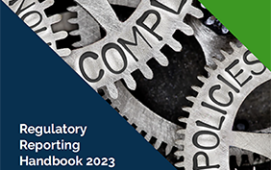
 By David Griffiths, Director of Regulatory Affairs, Eventus Systems.
By David Griffiths, Director of Regulatory Affairs, Eventus Systems.
The journey into the world of trading digital assets is underway but differing regulatory regimes and a lack of technology standards remain a challenge. A recent A-Team Group webinar with representatives from Archax, R3 and Eventus provided insight into the ‘The Emerging Market Structure for Institutional Trading of Digital Assets’.
Digital assets provide the opportunity to reduce costs, lower risk and broaden asset-class coverage. Global adoption is accelerating, aided by regulatory developments and technology advancements. And with the weight of a growing number of major financial market infrastructures behind the latest developments, momentum in the institutional space is building.
Gaining access to new digital market venues and platforms presents challenges, however, including establishing surveillance and risk systems against a backdrop of shifting regulatory clarity and guidance. This webinar offered various perspectives around trends, early successes, and challenges of trading in the burgeoning digital landscape.
Opportunities abound in institutional digital asset markets
For many firms, trading in digital assets is a relatively new endeavour, with many participants entering the markets in the past 12 months. Regulatory approval has been granted to several new digital exchanges, and venues like the Swiss Digital Exchange (SDX) have begun a soft launch – the first of a new breed of mainstream blockchain-based technology platforms to go live.
The panelists noted that the potential advantages of digital assets are manifold, among them the possibility of diversification into higher-yield alternative asset classes, as well as streamlined post-trade processes that lower settlement costs and reduce risk.
Echoing their sentiment, a poll of the webinar’s listeners revealed 67% were already assessing their participation in new digital asset marketplaces, looking to take advantage of the democratisation and fractionalisation of new asset types like real estate, large infrastructure projects and private placements.
 But embracing these new opportunities introduces some challenges – the growing pains of navigating the technicalities of the new landscape.
But embracing these new opportunities introduces some challenges – the growing pains of navigating the technicalities of the new landscape.
Some marketplaces are trying to insulate their members by providing a one-stop service for trading and settlement, explained Archax. But inevitably, larger institutional electronic trading players have begun to implement a more industrialised infrastructure to underpin their digital asset trading.
A second poll revealed that whilst a small proportion of the audience would outsource their activity in this space to other dealers, nearly 40% were looking to deploy completely new technology solutions to support their digital asset trading in future.
Front-running the regulatory requirement
While regulation has historically been reactive to change, it is now a driver of innovation, according to the panelists – but this new dynamic comes with shifting demands.
The oversight and institutionalisation of digital assets must be informed by the lessons learned from traditional finance and existing regulatory guidance. Participants must seriously consider mirroring the operational controls and safeguards that exist in traditional securities in their plans for trading in these new markets, even if relevant standards and identifiers are still in development.
 The EU’s Markets in Crypto Assets (MiCA) directive is an example of proposed regulation that aims to define digital assets not already covered by MiFID II, such as stablecoins, as well as their associated service providers (Crypto-Asset Service Providers, or CASPs).
The EU’s Markets in Crypto Assets (MiCA) directive is an example of proposed regulation that aims to define digital assets not already covered by MiFID II, such as stablecoins, as well as their associated service providers (Crypto-Asset Service Providers, or CASPs).
Several leading digital asset exchanges have spoken publicly about the steps they’ve taken to ensure trade surveillance and prevent market abuse, working with regulators and deploying leading, institutional-grade trade surveillance and risk platforms.
For new entrants in the marketplace, the key will be future proofing their investment in surveillance and risk infrastructure against the evolving regulatory landscape and being able to provide a single holistic view into the digital asset risk landscape. As Eventus explained, this can be achieved by building on a best-of-breed solution, leveraging the same principles as traditional finance. Where regulation is uncertain, flexibility is key. To this end, interoperability can provide an interconnected ‘single pane of glass’ view across surveillance, KYC and AML services that also guards against potential consolidation of platforms or providers and future changes in regulation.
As the panelists concluded, regulators, venues and market participants are preparing for the new world of digital assets – a world in which traditional and decentralised venues come together. While these entities should look to existing frameworks and markets for guidance, a significant proportion of these players are already implementing new technology – such as a robust surveillance and risk management infrastructure – to meet their needs and gain a first-mover advantage, putting them in a great position to navigate future evolution.
Subscribe to our newsletter




